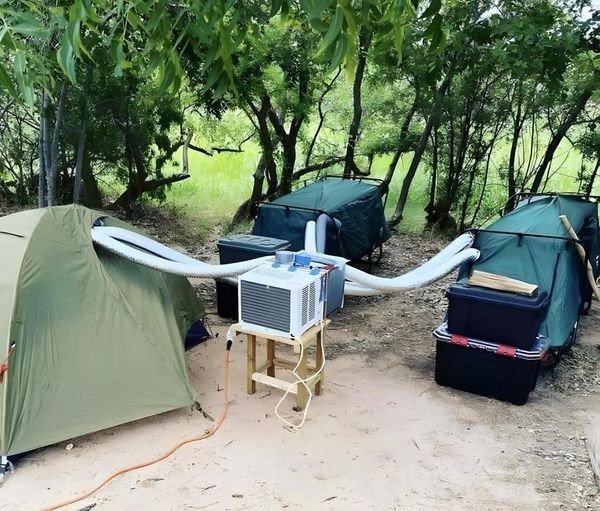“Tidbits From TNT” Saturday 5-25-2024
TNT:
CandyKisses: Taif Sami in the House of Representatives next week
Baghdad - Iraq Today:
The Chairman of the Finance Committee, Atwan Al-Atwani, confirmed that the Minister of Finance will host early next week on the 2024 budget tables.
The media office of the Chairman of the Finance Committee quoted in a press statement as saying: "The Minister of Finance will be hosted early next week on the 2024 budget tables."
He added that "the Minister of Finance will discuss the reasons for the increase in operating expenses as well as the financing file."
"We agreed to complete the discussions of the law amending the staff in the next meeting in order to submit it to the House of Representatives for a vote," he said.
CandyKisses: Ending the UNAMI Mission Marks a Step for Iraq Regaining Full Sovereignty
Farhad Alaaldin-The Iraqi Prime Minister's Advisor for Foreign Affairs
Saturday - 25 May 2024
In a formal letter, dated 8 May 2024 and addressed to the United Nations Secretary-General, Antonio Guterres, Iraqi Prime Minister Mohammad Shia al-Sudani called for “ending the mandate of the United Nation’s Assistance Mission in Iraq (UNAMI) on 31 December 2025", emphasizing that "after more than 20 years of democratic transition and overcoming great and diverse challenges, the justifications for a political mission in Iraq are no longer present".
This letter was delivered in time, by the Iraqi Charge d'Affaires at the United Nations, before the Security Council (SC)’s scheduled meeting on 30 May 2024, to vote on UNAMI's fate. Iraq is not a member of the Council, however, it will be difficult for the existing SC members to ignore the wishes of an elected Government of Iraq.
The strategic review
In May 2023, Iraq made a formal request to the SC to reduce the UNAMI mandate. In response, the Council set up a three-man committee, headed by Volker Perthes of Germany, to carry out a “Strategic Review” of UNAMI's mandate, based on the SC resolution 2682 (2023). The committee visited Iraq in Nov 2023 and conducted 250 interviews with various stakeholders, including the Federal Government, the Kurdistan Regional Government, political parties, civil society organizations, think tanks and the UNAMI staff all over Iraq. They also reviewed the papers and work of UNAMI both in Iraq and New York, before submitting their report to the Secretary General in Feb 2024.
The ‘Perthes’ report unequivocally acknowledged the progress made in Iraq, and that: "the Iraqi political system has, at least over the past eighteen months, increasingly demonstrated its ability to manage crises". It further adds "no UN political mission should stay in a country forever. Prolonged third-party presence may discourage local solutions and national ownership". Perthes therefore recommend that “the Mission begin to transfer its functions to national institutions and the United Nations country team in a responsible, orderly and progressive manner within an agreed time frame."
Thus, both the Iraqi Government and Perthes’ Strategic Review agree on ending the mission, with a slight variation in the timing and process, as the Iraqis want to end the mission by Dec 2025 with an immediate winding down and switching the focus away from the political file, to "economic reform, service provision, sustainable development, and climate change”. Perthes’ report, however, recommends ending the mission by June 2026 while keeping the political files with a gradual weaning process.
Iraq facing its own challenges
This year will see the end of three significant missions in Iraq that were all set up under various Security Council Resolutions, namely the UNITAD, the UNAMI and the International Coalition to fight ISIS. As a result, Iraq will be a step closer to taking full responsibility for its destiny as a confident and fully sovereign state. Critics might see the ending of these missions, all in one go, leading to Iraq’s isolation. However, the Iraq of 2024 is not the same Iraq of 2003 when the regime collapsed, or the Iraq of 2014 when ISIS ripped through the country and took over one-third of it. Today’s Iraq is more stable, confident and forward looking.
Iraq is now seeking to confront its own challenges directly, but with international cooperation. Many of the key challenges have persisted for over two decades when the UNAMI was operational in the country. Clearly the issues are complex but experience shows that solutions come primarily from within, as acknowledged and encouraged by the Strategic Review Report. The report emphasized that "ownership of these issues is now in the hands of Iraqi institutions. They have the capability to advocate for peace and stability within the country and with external actors." Indeed, such capability was vividly illustrated in Kirkuk, where the Prime Minister presided over the meetings of the various political parties to hold Kirkuk provincial elections, which have not taken place since 2005. Another example is the border security agreement signed with Iran, and the Strategic Cooperation Agreement signed with Türkiye to deal with the most difficult challenges relating to both Water and Security.
Thank you UNAMI
The Iraqi Government deeply appreciates the UNAMI and other UN agencies' positive roles in Iraq over the past two decades. In a statement issued on May 12, the Iraqi Government expressed "gratitude to UN Secretary-General Mr. Antonio Guterres, the Special Representative of the UN Secretary-General in Iraq, Ms. Jeanine Hennis-Plasschaert, and all UNAMI staff for their support over the past years." Undoubtedly, Ms. Hennis-Plasschaert’s dynamic and energetic engagement and significant contributions to Iraq have been instrumental and widely acknowledged.
However, many critics within Iraq often highlight the failure of UNAMI to execute some of its mandates over the past two decades, despite ample national and international support. Some go as far as accusing the UNAMI of systematically ignoring the shortcomings of Iraq’s political system, the widespread election fraud and human rights abuses that the Iraqi government itself had recognized. It was during the UNAMI’s presence that Al-Qaeda flourished, ISIS invaded the country, violence erupted in the aftermath of the Kurdish Referendum of independence and Iraq suffered the worst political deadlock after the 2021 election which led to the withdrawal of the Sadrist Movement from the political process. Other outstanding processes that fall within the UNAMI’s mandate that remain unaccomplished, include the Kuwaiti’s missing persons and national archives in Iraq, the implementation of the Sinjar agreement and the failure of Kurdistan Region to hold general elections for two years.
That said, the Iraqi Prime Minister firmly believes that these ongoing issues can only be resolved through national efforts, by bringing together Iraq’s political leaders to hammer out practical solutions. This is exactly what recently led to breakthroughs in Baghdad – Erbil cooperation, and the holding of Iraq’s first and most peaceful provincial elections since 2013.
Furthermore, Iraq is going to ask for UN help in some of the files, such as elections, Iraq would seek UN help with a team of experts to provide technical support as they have done in the past, however, such help would be temporary and only for the duration of the election process. Another example would be the continuation of the tri-partite process of the Kuwait file, where the Iraqi government will work diligently to conclude this file with the help of the International Red Cross and technical support of the UN if needed.
The future
PM Al-Sudani has frequently asserted that “the guiding principle” of his foreign policy is "Iraq first", via building strong partnerships based on common interests with friendly countries in the region and beyond. Iraq will work with all its international partners to forge bilateral alliances that help its security and stability, and will open up to business and economic partnerships. Signing the Development Road agreement with Türkiye, Qatar, and the United Arab Emirates is a good example of using economic opportunities as launching pads for future regional cooperation.
The Iraqi government is working hard on addressing the three areas of concern that is highlighted in Perthes’ Strategic Review, where he concludes that “the stability of Iraq today is fundamentally threatened by three phenomena: (a) the fragility of institutions; (b) the proliferation of armed actors; and (c) the potential for the emergence of a new ISIS or other forms of terrorism and violent extremism.”
Significant strides have been achieved in bolstering the institutions, fighting corruption and depoliticizing the institutional leadership positions. On the proliferation of armed actors, the Prime Minister made it clear that “these groups grew out of the complex circumstances that Iraq encountered while confronting terrorism. But little by little, as security and stability are restored, the need for weapons outside the control of the state and its institutions will disappear. We are working concertedly toward that end”. As for terrorism and violent extremism, the Iraqi government believes that ISIS is now defeated and no longer poses a threat to the state of Iraq. Its comeback is rendered even more difficult by the enhanced capability of Iraqi security forces, the new stability that Iraq enjoys, and the economic boom which no part of Iraq is feeling left out.
Iraq is now poised to play the pivotal role it is destined to play in the region, and regaining its sovereignty is the first step. Ending international missions such as UNAMI will strengthen Iraq further by relying on its own institutional capacities to tackle the various challenges it continues to face.
************
CandyKisses: Iraq announces investments amounting to about $1.5 billion
Economy News - Baghdad
Today, Friday, the Iraq Fund for Development outlined three achievements it has achieved since its founding, while announcing investments amounting to about $1.5 billion.
The Executive Director of the Iraq Fund for Development, Advisor to the Prime Minister for Investment Affairs, Muhammad al-Najjar, said, “Since its establishment less than a year ago, the Fund has achieved three achievements, the first of which is: signing 17 memorandums of understanding with 17 different companies (Saudi, British, and American) to enter into... Iraq".
Al-Najjar added, "The value of the total investments achieved by these memorandums approached one and a half billion dollars," pointing out that "these imports for the first time enter Iraq, not in the field of energy, but in the field of industry, agriculture, and gas production, that is, industrial gases."
He pointed out that "the second achievement was the launch of the investment schools project, and applications were submitted to build 2,000 schools through investment, and the state rents them from investors, which saves huge sums of money, since for the price of 100 schools we can build 1,000 schools in a much shorter period of time than was thought." That is, school crises will be resolved as quickly as possible.”
He continued: “As for the third achievement, it represented the launch of social projects for the first time, such as building schools and so on, implemented through the private sector, and for the first time we can attract the private sector to this number and this number of investments related to the state, which is considered a fundamental change that the government and the Fund have succeeded in establishing.” For him, under the government of Prime Minister Muhammad Shia al-Sudani.”
He pointed out that "there is an international desire to enter the fund, but our tendency is for participation to be through companies investing in Iraq, and not directly in the fund, because the fund has the peculiarity of being financed from the general budget and subject to the laws of the Iraqi state."
He stated that "funds and companies often prefer to operate under the laws of the private sector, so we have attracted investments for companies," stressing that "the amount of investments that entered compared to the fund's capital is very large."
He concluded by saying: "We are currently working according to the rule that for every dinar we attract ten dinars, meaning that if a trillion is allocated, we try to set investment rates worth ten trillion dinars in return."
Mot: ..... I Try and ~~~~
Mot: . Already fur da Camping Season I Is!!!

